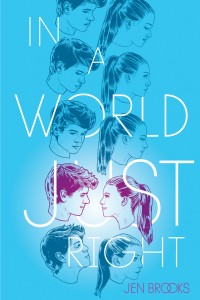January, 2013
A beautiful pay-off: Nicole R. Dickson’s Casting Off
I just finished reading a book that had a remarkably powerful pay-off for me: Nicole R. Dickson’s Casting Off. The story is about a single mom who is six years past being in an abusive relationship. She’s still struggling to find herself, to find security, to find “home.” She thinks she’s spending a summer on a tiny Irish island to study sweaters using a research grant, but of course it ends up she’s really there to change her life.
The pay-off in any novel is only as powerful as the layering of promises and expectations that go into the making of it. In the case of Casting Off, Dickson layers in chapters showing the protagonist’s anxiety and chapters showing the secondary protagonist’s misery. She also takes pains to show how each sweater knitted on the island is done in special patterns that reflect the life of the person who will wear it. Likewise, the sweaters are shown in several cases to be instrumental to the wearer’s well-being. All of this crafting, and more, had to be done to produce the pay-off.
I wish all of you had read this novel so I could just blurt out the details of the scene I found so touching, but since I don’t know who of you has read the book, I won’t give spoilers. I will say that the truth revealed in the scene was expected and unexpected and so beautiful it made me cry for the rest of the book.
If you have a completed manuscript and want to see if your pay-off has been layered properly, there are many ways to go about it. One pretty basic suggestion I can give is to exchange manuscripts with another writer, but make sure each of you leaves out the pay-off part. The pay-off is the scene that your novel builds to. It is usually the climax of the book. (I will confess that in the case of Casting Off, others might identify the climax as coming in a scene after the scene I adore.) The pay-off is the delivery of the promise you made to the reader at the beginning of your book and then built upon in the middle.
So you take your manuscript with the pay-off missing and have your writer-friend read it while you read your writer-friend’s manuscript that’s missing its own pay-off. Each of you should write down what you think is in the missing pay-off and give examples from the manuscript that have created this expectation. Then, share your thoughts. It will be interesting for you to hear whether your writer-friend’s guesses are accurate, but it will be just as helpful for you to see if your own guesses are accurate about your writer-friend’s story. Once you have exchanged guesses, share the real endings and discuss how they met or didn’t meet your expectations and what each could do to strengthen the pay-off. Armed with new insight, you then go back through your manuscript and develop the parts that need developing for a great pay-off.
And you could read Nicole R. Dickson’s Casting Off, if you want an example of a novel that does pay-off well.
Disclosure: I am in the process of reading books by other authors on my agent’s client list. This is how I came to read Casting Off. To be clear, I have not been asked to promote, nor is it my purpose to promote this book other than to say I found in it a great example of an important writing principle. :)

